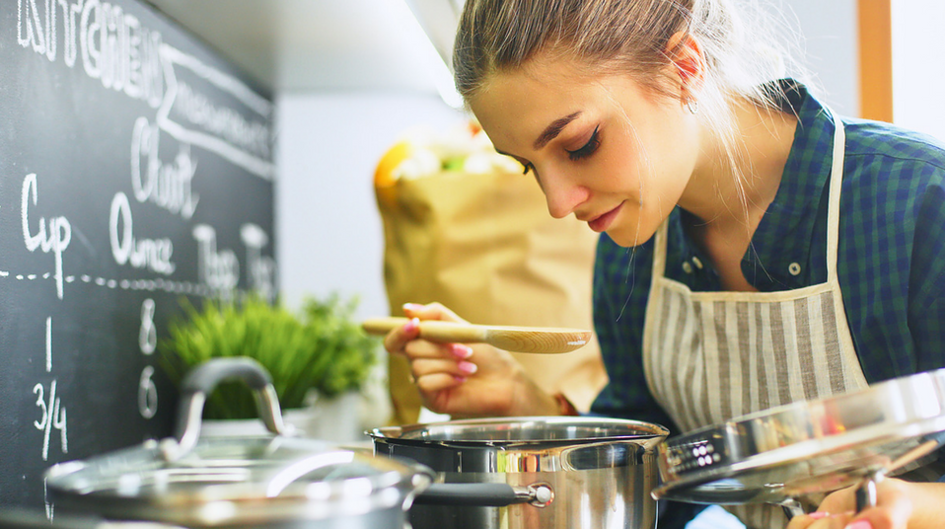You may not realize it, but there are a lot of sounds that go with the smells of a kitchen. Those sounds can tell you a lot about food, such as when it’s time to turn down the heat on the stove or add a new ingredient to the dish. For someone with hearing loss, cooking can be a challenge. But I’ve learned some ways to cope without hearing in the kitchen.
Here are four tips for cooking in the kitchen with hearing loss:
Cooking with hearing loss
1. Plan extra time to cook
If you have hearing loss and you’re cooking with other people, you may want to plan for extra time in the kitchen so you don’t feel rushed.
Because of my hearing loss, I rely on lip-reading, which means I have to stop what I am doing to read the speaker’s lips. This can delay the cooking time, so I try to prepare ahead of time. I go over the instructions first before starting to ensure I know what to do. I also let whoever is cooking with me know to stay in the same room so I don’t have to continuously go from room to room to ask a question.
There are lots of apps which can help you prepare your food, or even simpler – a notebook! Writing down step by step guides can help you follow what you’ll need to do.
If you need extra help in the kitchen, consider trying out the Let’s Cook – The Meal Preparation Timer.
2. Keep an extra watch on the food
I never realized until recently that sounds can tell you so much about food. For example, water about to boil over the pan, or onions sizzling too much indicating the heat needs turning down. When you hear these sounds, you don’t necessarily need to watch all the dishes.
Because I can’t rely on listening, I try to monitor my cooking closely with visual clues about how the food is cooking. I always stay in the kitchen in case anything happens.
There are apps you can download which let you record common sounds, so perhaps record the sound of water boiling or food sizzling so your phone will alert you if these sounds are occuring if you’re doing something else. You can set your phone to vibrate, or some phones have a flashing light alert on them.
I like this Sound Alert app, which allows you to record specific sounds, such as the Microwave beeping, then alerts you on your phone.
3. Utilize tools
Because I can’t hear a traditional oven timer, I use a timer or my phone. A smart watch with an alarm that flashes or vibrates, is also a great tool to ensure you don’t overcook your food. Most technology companies have smart watches which come with timer apps, so why not research to see what’s best for you?
If not, a simple flashing alarm clock can do… just set it to the time when the food is ready and it will either flash or vibrate depending on which you prefer.
It’s also good to be aware of dangers in the kitchen and to keep yourself safe, particularly if there are fire hazards. There are personal pagers which you can keep on you at all times in case of emergency.
4. Practice!
As anything in life, practice makes perfect. If you want to become a better cook, try to get involved with cooking whenever you can. Even if you are behind in learning how to cook it’s okay! Practice the same recipes and adjust them to your liking. Don’t be afraid of experimenting with flavours and ingredients. That is the beauty of cooking, you can make it your own!
As you practice, go at your own pace and prepare beforehand. Recipes can often be tweaked and improved with practise. Have fun, it’s not scary and with practise, you’ll be a ‘Masterchef’ in no time!


